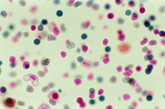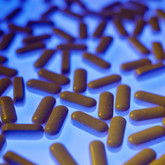Generics
Alimta and Orfadin generics approved by FDA
The US Food and Drug Administration (FDA) has tentatively approved Mylan’s pemetrexed, a generic version of Eli Lilly’s cancer drug Alimta, and approved Novitium Pharma’s generic equivalent of Swedish Orphan Biovitrum's Orfadin (nitisinone capsules).
New evidence: comparable clinical outcomes for generic and brand medications
New research carried out at Brigham and Women’s Hospital and Harvard Medical School, provides additional evidence that shows generic and brand-name drugs have comparable clinical outcomes [1].
Carcinogen contamination halts distribution of generic Zantac
Heartburn drug Zantac (ranitidine) is being taken off markets worldwide following findings that the medications may be contaminated with cancer-causing agents.
Evaluating success: generics substitution policy in Chile
The effectiveness of Chile’s 2014 generics substitution policy has been assessed by an international team of researchers. In their BMJ Global Health [1] article, the authors reveal that, although there has been a decrease in the uptake of expensive originator drugs, this is not mirrored by an increase in the uptake of less expensive bioequivalent products. This shows that further work is needed to help increase the uptake of generics in Chile.
EMA approves leukaemia and multiple myeloma generics
The European Medicines Agency’s (EMA) Committee for Medicinal Products for Human Use (CHMP) announced on 20 September 2019 that it had recommended granting marketing authorization for hypertension and leukaemia and multiple myeloma generics.
FDA’s global inspection strategy strengthened
The US Food and Drug Administration (FDA) has implemented a modernized approach to ensure the safety and quality of globally produced innovator and generic medicines. Through its Program Alignment, FDA’s Office of Regulatory Affairs has modernized its workforce and approach to improving public health to keep up with globalization and increasingly complex supply chains. Since FDA implemented Program Alignment in 2017, the regulation of generic medicines has become increasingly strategic, risk-based and efficient.
Generics in Chile: policy success but promotion required
A first-time evaluation [1] of Chile’s generics substitution policy has shown that there has been a decrease in sales of branded originator medicines since policy implementation in 2014. However, this was not mirrored by an increase in sales of the corresponding generic drug products. The BMJ Global Health [1] article authors note that, to improve access to medicines in Chile, more work needs to be done to promote the uptake of generics.
TRIPS flexibilities: current and future use in the SADC region
In response to the HIV/AIDS crisis of the late 1990s, several legal options were introduced to facilitate access to lower-cost treatments. These included flexibilities in the World Trade Organization (WTO) Trade-Related Aspects of Intellectual Property Rights (TRIPS) Agreement, known as ‘TRIPS flexibilities’. In a recent review, authors ‘t Hoen, Kujinga and Boulet describe TRIPS flexibilities and discuss their current and future use in the Southern African Development Community (SADC) region [1].
Improving access to medicines: the Doha Declaration on the TRIPS Agreement
In a recent review, authors ‘t Hoen, Kujinga and Boulet describe the role of the Doha Declaration on the World Trade Organization (WTO) Trade-Related Aspects of Intellectual Property Rights (TRIPS) Agreement in improving access to essential medicines [1].
China issues list of generics needed in the country
Authorities in China have introduced an initiative which the country hopes will boost the development of generics by encouraging pharmaceutical companies to develop and produce them.












